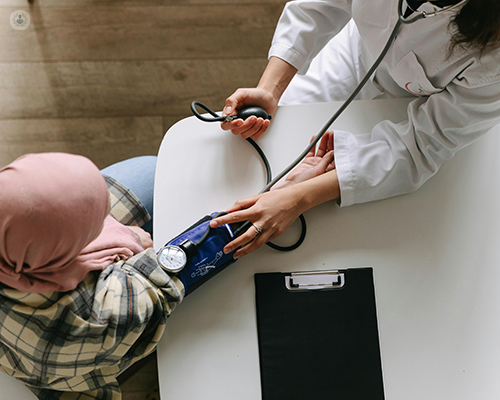How acute home visits provide urgent care
Written in association with:An acute home visit is a healthcare service where a medical professional, like a GP, visits a patient’s home to provide urgent care.
Dr Matea Deliu, leading portfolio GP (general practitioner), answers the key questions about acute home visits, including when they are indicated, the services provided, and how they can also support palliative care.

What are the indications for an acute home visit?
Acute home visits are intended for patients experiencing new or worsening symptoms that require medical attention but are not severe enough to require hospital admission. This includes patients with sudden infections, flare-ups of chronic conditions, new pain, and recent surgeries that need follow-up care.
Acute home visits are designed to help patients manage their health within the comfort of their own homes. For this reason, this form of healthcare is particularly beneficial for patients with limited mobility, chronic conditions, or a preference for home-based care.
What services are provided during an acute home visit?
Medical professionals visiting the home are equipped to provide medical assessments, treatments, and health guidance in a way that replicates in-clinic care and is tailored to the patient’s condition and immediate needs.
Services can include:
- Physical and symptom assessments: Evaluating symptoms, monitoring vital signs (including temperature, blood pressure, and oxygen levels), and reviewing the patient’s recent medical history.
- Acute diagnostics: Urine testing, blood sugars, ECG, and soon point of care blood tests.
- Medication management: Administering medications (whether orally, through injections, or intravenously), based on the patient’s health needs. This can include antibiotics, pain relievers, and intravenous therapy such as IV fluids.
- Wound care and dressings: Cleaning wounds, replacing dressings, and monitoring wounds for infection, ensuring proper healing.
- Respiratory support: Supplying oxygen therapy or nebuliser treatments, assessing breathing conditions, and adjusting medications as needed.
- Patient education: Providing patients practical guidance on managing symptoms, following medication schedules, and preventing complications.
The duration of an acute home visit will depend on the complexity of the patient’s condition and the types of services required. The medical professional will arrange follow-up visits or check-ins at the end if a patient’s condition requires further monitoring.
What if my condition worsens and requires emergency intervention during the visit?
While acute home visits are designed to manage urgent care needs, they should never replace emergency care. If a patient’s symptoms become critical, the medical professional will be prepared to act quickly. In most cases, this will involve administering initial emergency care to stabilise the patient’s condition until emergency services arrive.
Can acute home visits support palliative care?
Yes, acute home visits can play a vital role in supporting palliative care, offering patients a comfortable and dignified experience in the familiarity of their homes.
In palliative cases, acute home visits will prioritise comfort over curative treatment. The medical professional conducting the visit will adjust medications, provide emotional and psychological support, and offer guidance to family and caregivers for possible transitions in the patient's condition.
If you would like to reach out to Dr Matea Deliu, head on over to her Top Doctors profile today.


